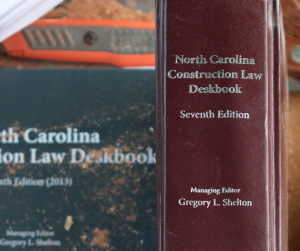 North Carolina to Enforce Reciprocal Attorneys’ Fees Clauses in Business Contracts Entered on or after October 1, 2011
North Carolina to Enforce Reciprocal Attorneys’ Fees Clauses in Business Contracts Entered on or after October 1, 2011
By: Gregory L. Shelton
Horack, Talley, Pharr & Lowndes, P.A.
gshelton@horacktalley.com
For years, North Carolina lawyers have had to explain to their clients that contract provisions entitling the winning litigant to an award of attorneys’ fees are not enforceable. We would explain that North Carolina courts would not award attorneys’ fees absent statutory authority or some exception to the rule. In the construction context, attorneys’ fees are recoverable in lien and bond enforcement actions and in cases brought under the Unfair or Deceptive Trade Practices Act.
Senate Bill 414 (Session Law 2011-341), signed into law on June 27, 2011, changes the status quo. Under the new law, reciprocal attorneys’ fees provisions in “business contracts” entered on or after October 1, 2011 will be enforceable in court. The term “business contract” is defined in the statute as a contract “entered into primarily for business or commercial purposes,” and does not include “a consumer contract, an employment contract, or a contract to which a government or a governmental agency of this State is a party.” Notably, the attorneys’ fees provision will be enforced “only if all of the parties to the business sign by hand the business contract.”
I recognize that many in the legal and business community will celebrate this new statute. In the abstract, it makes sense to require the bad guy to pay the good guy’s attorneys fees. But consider the fact that many legal disputes are determined on purely legal principles, such as a statute of limitations defense, and not on the actual merits of the case. Also, in many cases, the recovery of attorneys’ fees becomes a “case within a case”; and entirely new battleground. Attorneys’ fees provisions are certainly a game-changer, but how the game will be changed will depend upon the particular facts and circumstances at play in the case, and the financial resources and personalities of the parties.
Fortunately, the General Assembly smoothed out the rough edges by allowing courts or arbitrators to consider the all of the facts and circumstances involved, including the financial resources of the parties, the behavior of the parties during settlement negotiations, the amounts of settlement offers as compared to the verdict, and the award of fees in similar business cases.

